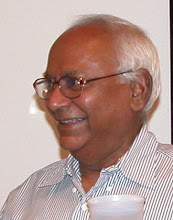India is trumpeted to be the largest democracy of the world. When pressed to clarify what kind of democracy does India have, it is mercifully conceded to have parliamentary democracy. And what does parliamentary democracy mean? It means that the adults (above 18 years of age) residing in a demarcated constituency have the right to elect their representative of the constituency for the central (Lok Sabha) or state (Vidhan Sabha) legislative bodies, normally every five years. Due to multiplicity of political parties and candidates put up by them, coupled with low voting percentage, the elected representative is generally voted for by only a minority of the eligible voters of the constituency. Technically, such representatives choose the leader of the house, who becomes the head of the respective governments, i. e., the Prime Minister of the Government of India or the Chief Minister of the state government, who, in turn, selects various ministers of the government concerned. In reality, due to multi party political complexion of the house as well as the dictates and discipline of the party, the head of the government is hardly the most popular leader of the members of the house, who are themselves elected mostly by a minority of the eligible voters of their respective constituencies. In case no political party is in absolute majority in the house, the election of the leader of the house and hence head of the government as well as selection of ministers by him are both vitiated by unethical, unprincipled and often outright dirty compromises and horse trading.Thus, in the parliamentary democracy in practice, there is no assurance at all that the elected head of the government as well as the selected heads of its various departments measure up to the criteria of popularity, merit or track record at an acceptable level. In any case, the people of the country or of the state have no effective role, direct or indirect, in the constitution of the executive branch of the government. They are reduced to being mute spectators of the game, often degenerating into a dirty game, of the formation, or shall we say imposition of the executive arm of the government on them. The constitution provides them a direct role in electing their representatives only for the legislative branch of the government in theory, which gets diminished and degraded through the electoral processes of parliamentary democracy in practice. Moreover, the instrument of governance that such an executive branch of government has to rely on and utilize for executing the affairs of the country or the state is the same as was designed and utilized for exploitation of a colony by an imperial power. These two together have given rise to most of the ills afflicting the body politic of India, such as precipitous decline of political morality, criminalization of politics, rampant corruption at all levels of government, social divisiveness and unrest due to inevitable emergence of vote bank politics, and most of all, impoverishment of the masses and widening gulf between the rich and the poor. People who are ultimate victims of all these ills find themselves utterly helpless in the situation. All in all, democracy is a mere illusion for the people. And illusion of democracy, being deceptive and giving a false sense, is worse than its outright negation.

No comments:
Post a Comment
Note: Only a member of this blog may post a comment.